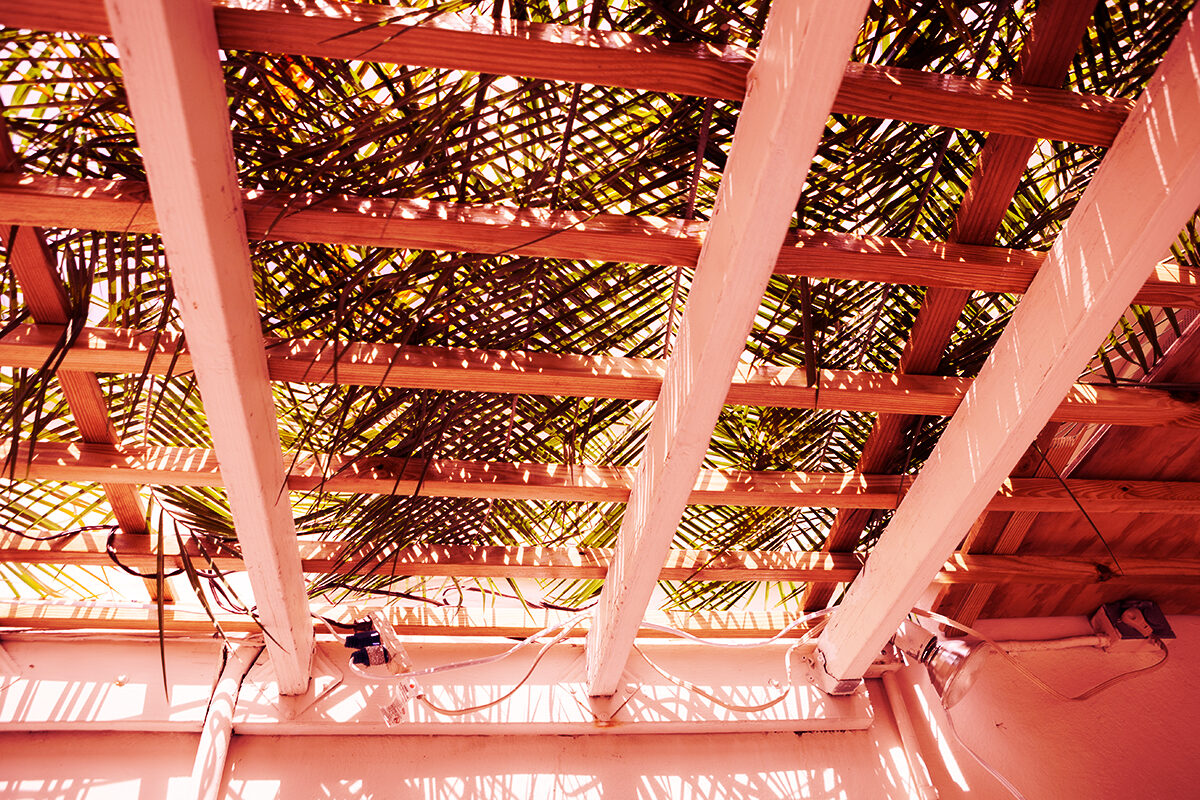Growing up, I celebrated Sukkot at synagogue. Our Hebrew school class would enter the sukkah, say a blessing, and eat an apple and a piece of cake. Sometimes we got to hang a handmade decoration. And that was it. It was better than sitting inside a classroom, but it wasn’t very exciting or compelling.
In my crowded, urban Jewish neighborhood in Philadelphia, only one family had a backyard sukkah. They actually ate meals and sometimes even slept in it. I thought it was so cool! When I grew up, I wanted to have a sukkah.
When my husband and I bought a house with a yard, we built our first sukkah. We purchased two-by-fours, tarps, and cinder blocks and religiously followed the instructions in the now-classic Jewish Catalogue. Our sukkah’s walls were wobbly, but they stood for all eight days. We invited a few friends and ate pizza. All of us were in our 20s, and only one of our guests had a baby. I was ecstatic! I finally had the sukkah I coveted as a kid.
So much of what drew me to Sukkot as a child continues to compel me as an adult. After all, what beats a holiday where you’re commanded to eat outside in a little hut that you get to decorate as creatively as you like? In recent years, I’ve been increasingly intrigued by and in awe of our ancestors, the Hebrews — refugees wandering in the desert, sleeping in flimsy temporary shelters after escaping from slavery in Egypt.
Our Sukkot celebrations evolved as our family grew. I was thrilled to introduce our daughter to our sukkah when she was 2 months old, and our son three years later, who delighted us by being born on Hoshana Raba, the seventh day of Sukkot.
For several years, during the holiday, I walked our kids’ predominantly non-Jewish elementary school classmates to our sukkah. They looked forward to making paper chains, having a snack, and hearing about the holiday. One boy was so enthralled he wrote and performed his own dramatic retelling of the story!
Our kids are now grown. And yet, almost every year, they come to our sukkah. We always invite a group of old friends as well as new .
What I love most about Sukkot is its message that life is fleeting and fragile. Rather than leading to nihilism, the conclusion we draw is that we must be joyful. And how do we do this? By actively doing joyful things: building and decorating a sukkah, inviting guests, and feeding them, of course!
We’ve had a sukkah every year, wherever we’ve lived. And some years, there have been challenges. Weather is frequently an issue — one year, our sukkah sailed across the yard in gale force winds (we have since improved our building technique). Another year, drenching rains hydrated our macaroni chains, causing some of our neophyte guests to wonder about the custom of hanging cooked pasta.
Some challenges were more difficult than the weather. It was hard to prepare for Sukkot a couple of years ago when my mother was rapidly declining into dementia. Another year, feeling somewhat depressed after the loss of a beloved job, I actually thought about not having a sukkah. But then I started to worry about my guests. Where would they go for Sukkot? With my husband’s prodding and encouragement, we did what we do every year: We put up the sukkah and invited our friends. Our celebration brought them joy, and their joy made me happy.
And now we find ourselves in the midst of the pandemic. We need to physically distance, wear masks, avoid singing, and even refrain from talking too loudly. Again, I wondered, “Should we have a sukkah?
Then it hit me. We need a sukkah this year more than ever. There’s no better time to actively create joy for ourselves, our families, and our community, especially at a moment when so many are feeling sad, depressed, isolated, off-balance.
We’ll make modifications, of course. No big parties. We’ll invite just a few people at a time. Our sukkah can encompass our entire deck, so we can spread out. And in a contemporary twist, which strays from tradition and strict Jewish law, we’ll use streamers instead of walls to let the air circulate. After all, doesn’t health take precedence over all else in Judaism?
We will also adapt to the needs of our guests. Those who are wary of sharing food can bring their own. (Guests bringing their own food! Yes, my mother would have been horrified — but under the circumstances would have understood.) And for any friends uncomfortable with contact with others outside of their living unit, we will schedule time to lend them our sukkah for their exclusive use.
We can be creative. We can make accommodations. And, above all, we must take care of each other, and do all we can to make each other happy this Sukkot.
Header Image by tovfla/Getty Images








